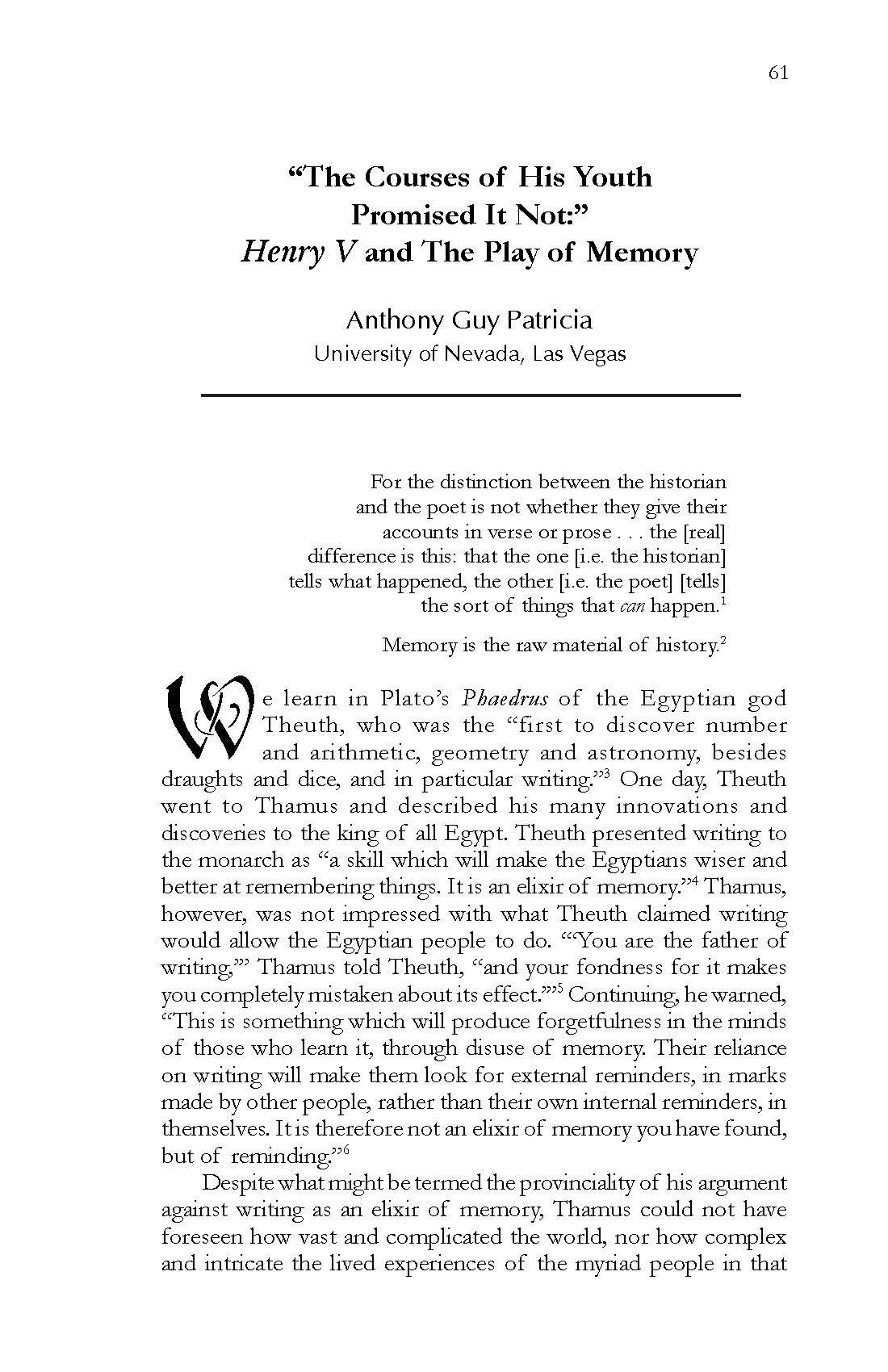The “Courses of His Youth Promised It Not:” Henry V and The Play of Memory
Main Article Content
Abstract
We learn in Plato’s Phaedrus of the Egyptian god Theuth, who was the “first to discover number and arithmetic, geometry and astronomy, besides draughts and dice, and in particular writing.”3 One day, Theuth went to Thamus and described his many innovations and discoveries to the king of all Egypt. Theuth presented writing to the monarch as “a skill which will make the Egyptians wiser and better at remembering things. It is an elixir of memory.”4 Thamus, however, was not impressed with what Theuth claimed writing would allow the Egyptian people to do. “‘You are the father of writing,’” Thamus told Theuth, “and your fondness for it makes you completely mistaken about its effect.’”5 Continuing, he warned, “This is something which will produce forgetfulness in the minds of those who learn it, through disuse of memory. Their reliance on writing will make them look for external reminders, in marks made by other people, rather than their own internal reminders, in themselves. It is therefore not an elixir of memory you have found, but of reminding.”6
